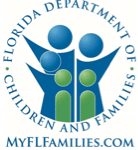Cognitive Remediation Therapy (CRT)
Home » How We Treat » Evidence-based Treatment and Additional Therapies » Cognitive Remediation Therapy (CRT)
What Is Cognitive Remediation Therapy (CRT)?
Cognitive remediation therapy (CRT) is a computer-based cognitive rehabilitation training program for patients with memory, processing speed, or executive planning deficits. It includes a series of game-like “brain training” exercises based on science that helps people think more clearly and quickly. It’s especially helpful with untreated mental illnesses and has been shown to protect and improve cognitive functioning.
CRT, also called cognitive enhancement therapy, helps an individual learn skills to manage their everyday life. CRT aims to reduce problems with cognition, such as attention, memory, and executive functioning. As a mental illness progresses, cognitive skills suffer and become more impaired. This decline will begin to interfere with a person’s normal functioning in relationships, at work, and in school. CRT focuses on improving cognitive deficits by interrupting the diminishment of these skills.
CRT was developed to treat disorders like schizophrenia, often characterized by cognitive impairments and disorganized thinking, causing abnormal functioning in relationships, at work, and in school. CRT helps an individual improve their attention, memory, problem-solving, organizational, and planning skills. Combined with therapy, psycho education, and medications, CRT has shown to be effective in stopping the cognitive decline and in some instances reversing it.
How We Use CRT
At Lifeskills, we use two different methods of administering CRT:
- Using a pen and paper
- Using computer programming
Dr. Krista Valz, Associate Clinical Director, prefers computer programming during which games are played on the Brain HQ computer program, an online brain-training system that uses a unique algorithm, adapting in difficulty as the client works. The games allow the client to train at the proper level and make cognitive improvements, and as they play, the games change to target distinct functions, such as facial recognition, and social skills. Unlike pen and paper, computer programming keeps the client’s attention and allows for easier tracking of progress.
Interested in learning more
About CRT or our other treatment methods?
Call our compassionate Admissions Team today at 954.691.3174 or fill out our contact form.






